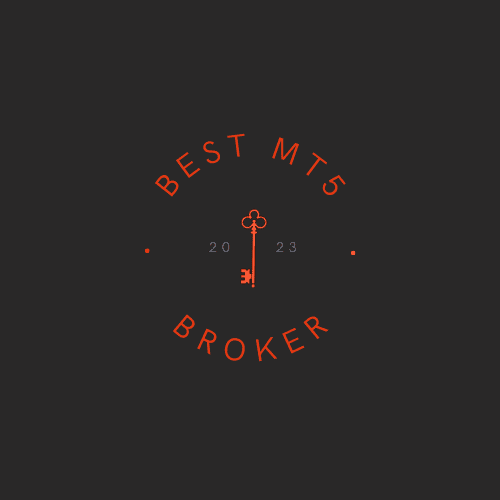
Navigate the World of CFDs: Choosing the Best Broker
Introduction
Demystifying CFDs: What Are They and Why Trade Them?
Contract for Difference (CFD) trading is a popular form of derivative trading in the UK, allowing investors to speculate on the rising or falling prices of fast-moving global financial markets. CFDs offer the flexibility to trade against price movements without actually owning the underlying assets. The benefits include access to a broad range of markets, leverage, and the ability to go long or short. However, they also come with potential risks, primarily due to market volatility and leverage.
Highlighting the Importance of Responsible Trading and Choosing the Right CFD Broker
Engaging in CFD trading demands an understanding of the market and responsible trading practices. It’s crucial for traders to choose a CFD broker that not only provides the right tools and resources but also aligns with their individual trading needs and goals.
Setting the Stage for the UK-Specific Landscape
In the UK, the CFD market is particularly vibrant, offering a variety of opportunities for traders. Understanding this landscape, including regulatory frameworks and market dynamics, is key to navigating the CFD trading world successfully.
Understanding the UK CFD Broker Landscape
Regulations and Investor Protection
Emphasizing the Importance of FCA Regulation for Safety and Security
In the UK, the Financial Conduct Authority (FCA) plays a pivotal role in regulating CFD brokers, ensuring they adhere to strict standards that protect investors. Trading with an FCA-regulated broker means benefiting from enhanced security, transparent trading practices, and the safeguarding of your investments.
Explaining How to Identify FCA-Regulated CFD Brokers
Identifying FCA-regulated brokers involves checking their certification and compliance on the FCA’s official register. It’s crucial for traders to verify this to ensure they are engaging with a reputable and legally compliant broker.
Avoiding Unlicensed Platforms and Potential Scams
The CFD trading world, while lucrative, can be fraught with unlicensed platforms and potential scams. Traders must exercise due diligence to avoid falling prey to such platforms, which lack regulatory oversight and can pose significant risks to investments.
Key Factors to Consider When Choosing a Best CFD Broker
Asset Selection and Traded Instruments
Wide Range of Major, Minor, and Exotic Currencies
The best CFD brokers in the UK offer a comprehensive range of currency pairs, from major and minor to exotic pairs. This diversity allows traders to exploit opportunities in various markets and apply different trading strategies.
Availability of Other Tradable Assets like Stocks, Indices, and Commodities
Apart from currencies, top CFD brokers provide access to a wide array of other tradable assets, including stocks, indices, and commodities. This variety enables traders to diversify their portfolios and manage risk more effectively.
Matching Your Trading Preferences with the Broker’s Offerings
It’s important for traders to align their trading goals and strategies with the assets offered by their broker. A good match can lead to more successful trading outcomes.
Trading Platform and User Experience
Popularity and Features of Available Platforms (MetaTrader, cTrader, Proprietary)
The choice of trading platform can significantly affect your trading experience. Popular platforms like MetaTrader and cTrader offer robust features and tools. Some brokers also offer proprietary platforms with unique functionalities.
Mobile Trading Capabilities and Compatibility with Your Devices
In today’s trading world, the ability to trade on the go is crucial. A broker’s mobile trading capabilities and the platform’s compatibility with various devices are important factors to consider.
Interface Design and Ease of Use for Beginners and Experienced Traders
The platform’s user interface should cater to both novice and experienced traders, offering ease of use without compromising on advanced features.
Fees and Costs
Understanding Different Fee Structures (Spreads, Commissions, Overnight Charges)
Fee structures among CFD brokers can vary, including spreads, commissions, and overnight charges. Understanding these fees and how they apply to your trades is crucial for managing your trading budget.
Comparing Fees Across Brokers and Their Impact on Profitability
Comparing fees across various brokers helps in finding an option that provides a balance between cost-efficiency and value.
Finding a Balance Between Affordability and Competitive Pricing
While low fees are attractive, they should not come at the expense of essential services and features. The goal is to find a broker that offers competitive pricing along with quality service.
Leverage and Margin Requirements
Risks Associated with Leverage and Responsible Trading Practices
Leverage can magnify both profits and losses. Understanding its risks and employing responsible trading practices is vital.
Understanding Margin Requirements and Managing Risk Exposure
Knowing a broker’s margin requirements is key to managing risk exposure. Ensure that these requirements align with your risk tolerance.
Finding a Broker Offering Suitable Leverage Options for Your Experience Level
Different leverage levels suit different trading styles and experience levels. Choose a broker that offers leverage options appropriate for your trading expertise.
Exploring Top CFD Brokers in the UK
In-Depth Reviews of 3-5 Leading Brokers
Detailed Analysis of Strengths, Weaknesses, and Unique Features
This segment will provide comprehensive reviews of 3-5 leading CFD brokers in the UK, delving into each broker’s strengths and potential weaknesses. The analysis will cover a range of factors such as regulatory compliance, asset offerings, trading platform capabilities, customer service quality, and any unique selling points that distinguish each broker in the competitive UK market.
User Interface Screenshots and Platform Functionalities Explained
To give a clear visual understanding, the reviews will include user interface screenshots from each broker’s trading platform. These visuals, coupled with detailed explanations of functionalities, will help traders understand how user-friendly and efficient the platforms are, particularly in executing CFD trades.
Targeting Reviews to Different Trader Profiles (Beginner, Intermediate, Advanced)
Recognizing that traders have varying levels of experience and needs, the reviews will be tailored to cater to different trader profiles. From beginners requiring intuitive platforms and educational resources to advanced traders in need of sophisticated analytical tools, each review will aim to guide traders in finding a broker that fits their specific requirements.
Comparison Table Highlighting Key Differences
Side-by-Side Comparison of Features, Fees, and Supported Assets
A comprehensive comparison table will be included to provide a clear, side-by-side overview of the critical aspects of each broker. The table will compare features, fee structures, range of tradable assets, and other important factors, enabling traders to easily assess and contrast the offerings of different brokers.
Easy Identification of Brokers Best Suited for Individual Needs
Designed for ease of use, the comparison table will aid traders in quickly identifying which brokers are best suited to their individual trading needs and preferences. Whether a trader prioritizes low fees, a diverse range of CFD instruments, advanced trading tools, or robust educational support, this comparative analysis will help streamline the decision-making process for choosing the best CFD broker in the UK.
Beyond Choosing a Broker: Essential Steps for CFD Trading Success
Account Opening and Verification
Understanding the Documentation Required and KYC/AML Procedures
Opening a CFD trading account in the UK involves several key steps, beginning with the submission of essential documents. This includes identification proof, such as a passport or driver’s license, and proof of residence. These are necessary for complying with Know Your Customer (KYC) and Anti-Money Laundering (AML) regulations, ensuring the legitimacy and security of the trading account.
Funding Your Account and Choosing the Right Deposit Method
After account verification, funding your account is the next step. UK CFD brokers offer various deposit methods, including bank transfers, credit cards, and e-wallets. It’s important to choose a method that aligns with your convenience, cost-effectiveness, and financial strategy.
Mastering the Trading Platform
Navigating the Interface, Placing Orders, and Managing Positions
A deep understanding of the trading platform is vital. This involves learning to navigate the interface, place various order types (like market, limit, and stop-loss orders), and effectively manage your trading positions.
Utilizing Charting Tools, Technical Indicators, and Risk Management Features
Successful trading requires proficient use of charting tools and technical indicators for market analysis. Additionally, utilizing risk management features such as stop-loss orders is crucial in mitigating potential losses.
Backtesting Strategies and Experimenting with Demo Accounts
Using demo accounts to practice and backtest your trading strategies with historical data is invaluable. This allows you to refine your approach without risking real capital.
Continuous Learning and Skill Development
Importance of Market Analysis, Fundamental and Technical Understanding
Staying informed and continually educating oneself in market analysis, both fundamental and technical, is critical for maintaining a competitive edge in CFD trading.
Educational Resources Offered by Brokers and External Sources
Many brokers provide educational resources, including webinars, tutorials, and articles, which are crucial for enhancing your trading knowledge and skills.
Staying Updated on Market Trends and Economic News
Keeping abreast of current market trends and economic news can greatly impact trading decisions. It’s important to stay informed about global events and financial news that can influence market dynamics.
Conclusion: Trading CFDs with Confidence
As we conclude our in-depth exploration of the CFD market in the UK, it’s essential to revisit the key considerations for trading successfully in this dynamic arena. The journey of CFD trading begins with choosing the right broker, a decision that shapes your trading experience and potential for success. This process involves understanding your trading needs, evaluating broker offerings, and ensuring regulatory compliance, particularly with the FCA in the UK.
Remember, the ideal CFD broker for you is one that not only aligns with your trading style and preferences but also provides robust platforms, a wide range of tradable instruments, and competitive pricing structures. Security, user-friendly interfaces, and the availability of educational resources are also vital factors that contribute to a fulfilling trading experience.
We strongly encourage traders to engage in comprehensive research and due diligence when selecting their CFD broker. Delve into the details of each broker’s offerings, read user reviews, test platforms through demo accounts, and compare fees and features meticulously. An informed decision, in this case, is not just about the present but also about setting a strong foundation for future trading endeavours.
As a final note, successful CFD trading in the UK is not just about the tools and platforms at your disposal; it’s equally about your approach to the market. It involves continuous learning, staying abreast of market trends and economic developments, and employing disciplined trading strategies. Utilize the educational resources provided by your broker, engage with trading communities, and never stop refining your trading skills.
With the right broker as your ally and a commitment to ongoing improvement and responsible trading, you can navigate the CFD market with confidence and skill, paving your way towards a successful trading journey in the UK.
